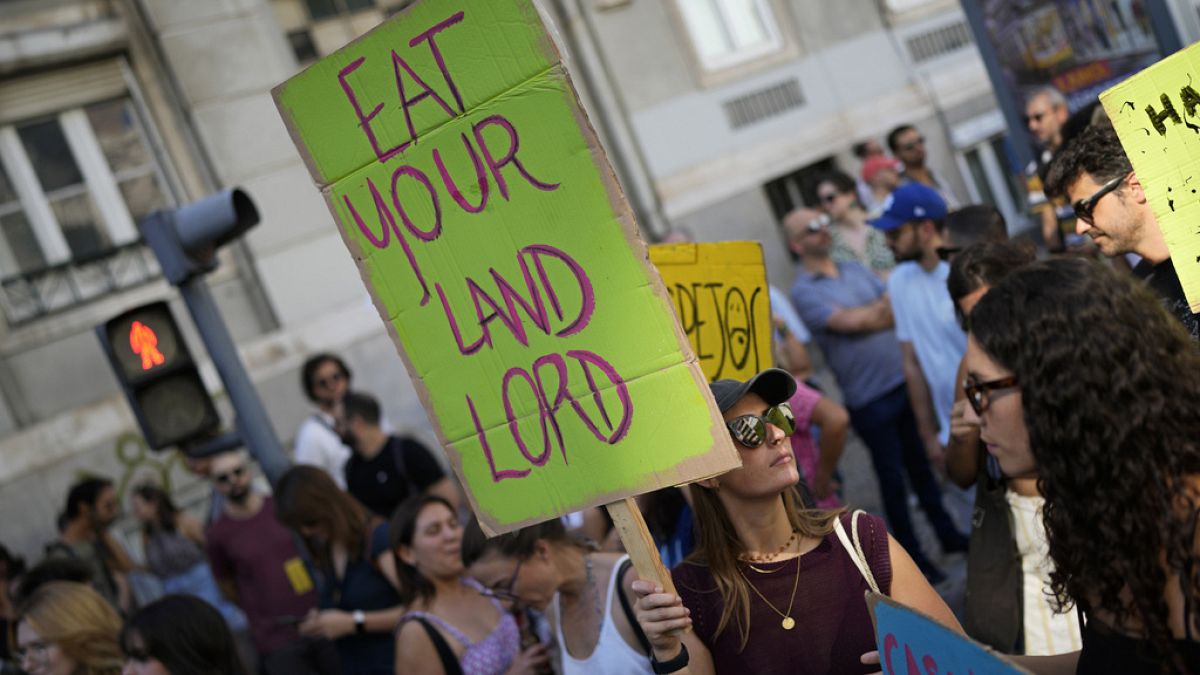Many Portuguese, including the middle class, are being priced out of Portugal’s property market by rising rents, surging home prices and climbing mortgage rates.
Several thousands of people took to the streets in Lisbon and other major cities across Portugal on Saturday to protest for the constitutional basic right to housing.
Protests organised by civil society groups were scheduled in 24 cities across the country.
This is the second protest of the year that focuses on affordable housing, within a context of continuous increase of prices to rent and interest rates skyrocketing which has a big impact on most households due to mortgages.
In Lisbon, the impact of the climate crisis was also a common issue that some protesters wanted to highlight.
Portugal is facing in recent days high temperatures for the season, on Saturday thermometers reached at least 32 degrees Celsius in the capital.
Portugal’s centre-left Socialist government unveiled a package of measures to address the problem of housing but protesters say the measures didn’t tackle the core and structural issues that affect the lives of so many in the main cities.
Many Portuguese, including the middle class, are being priced out of Portugal’s property market by rising rents, surging home prices and climbing mortgage rates, fuelled by factors including the growing influx of foreign investors and tourists seeking short-term rentals driving up prices that force local people out of their neighbourhoods.
Between 2020 and 2021, house prices in Portugal shot up by 157%.
From 2015 to 2021, rents jumped by 112%, according to the European Union’s statistics agency Eurostat.
Portugal is one of Western Europe’s poorest countries and has long pursued investment on the back of a low-wage economy.
Just over half of Portuguese workers earned less than 1,000 euros a month last year, according to Labour Ministry statistics.
